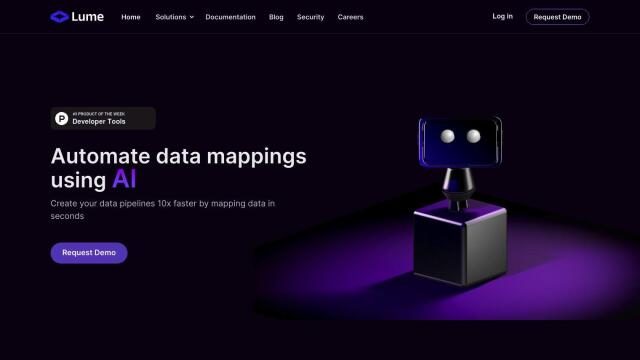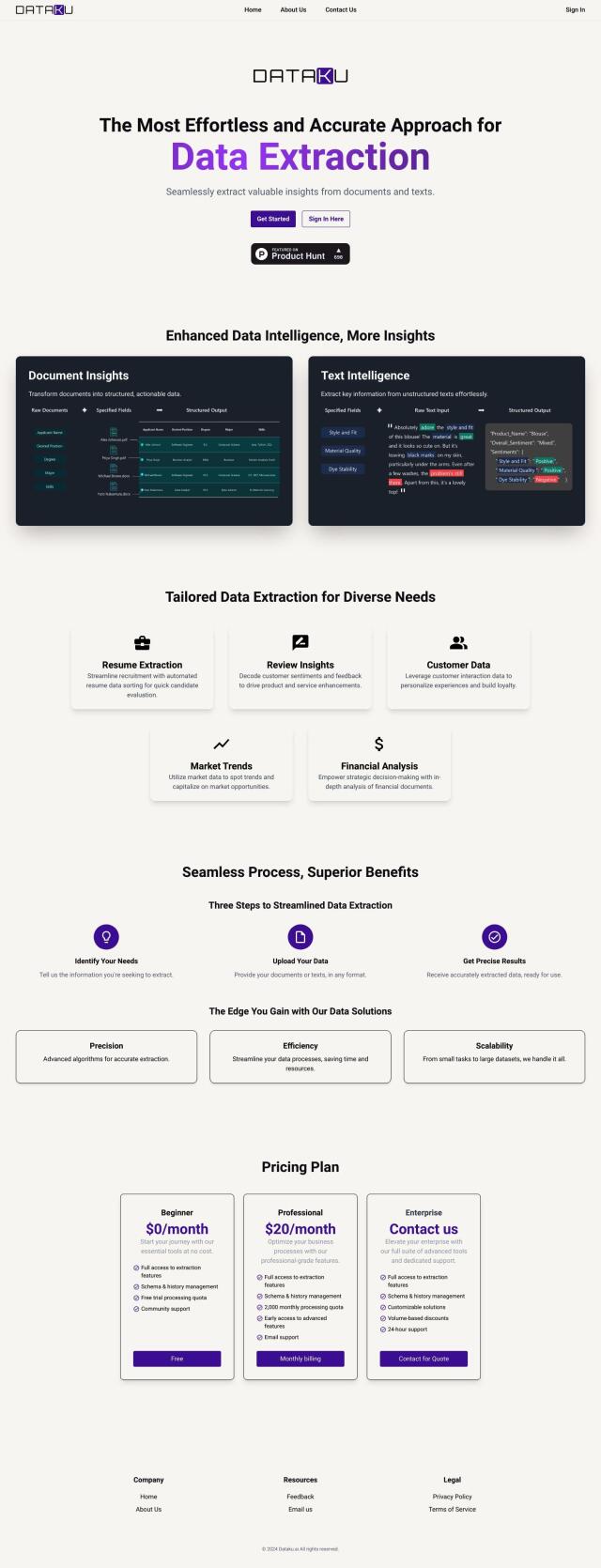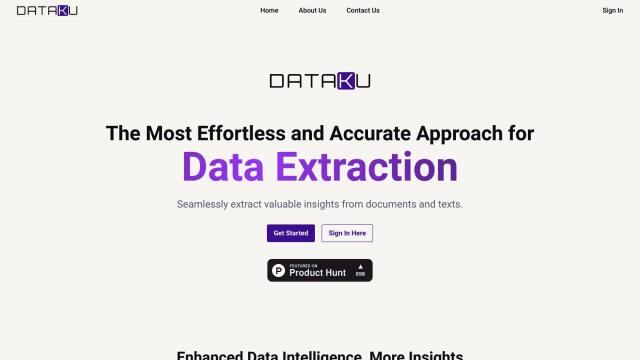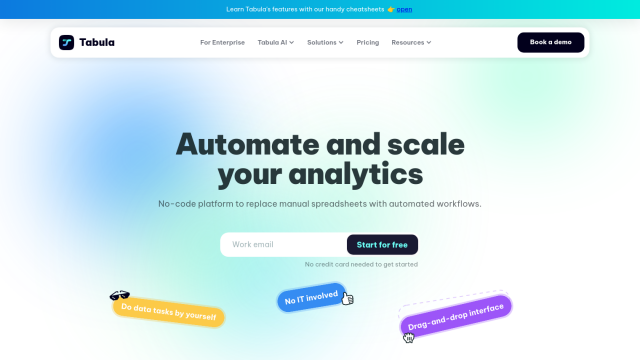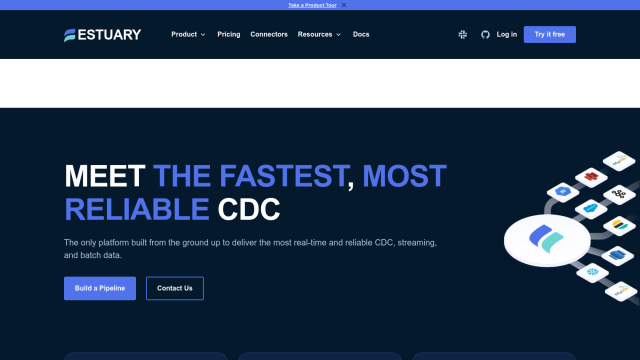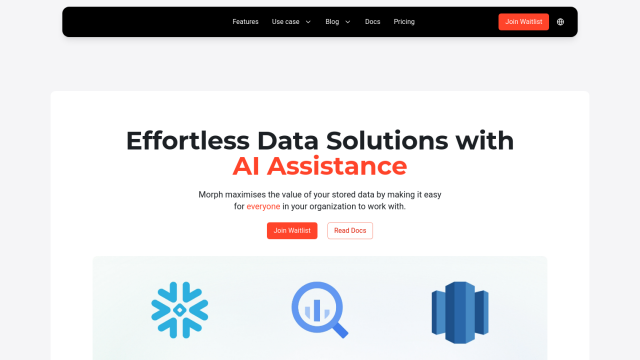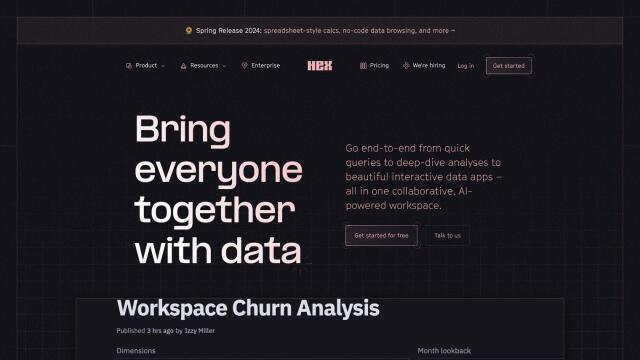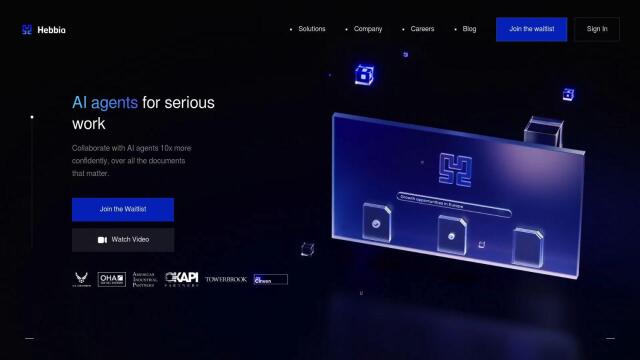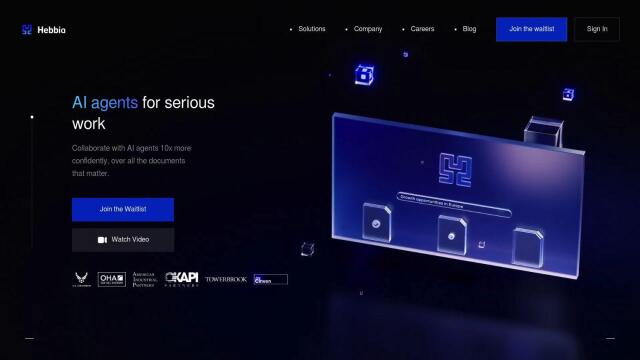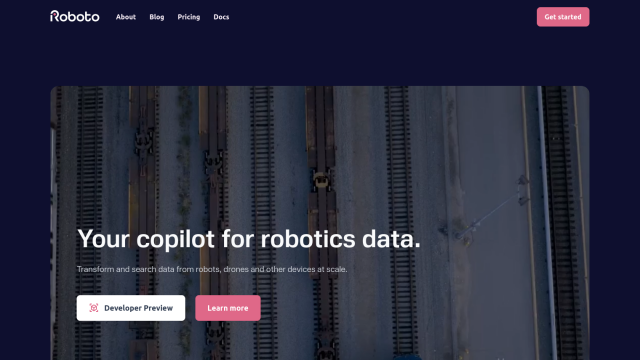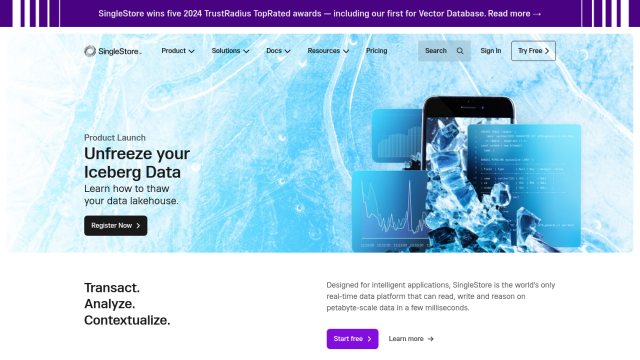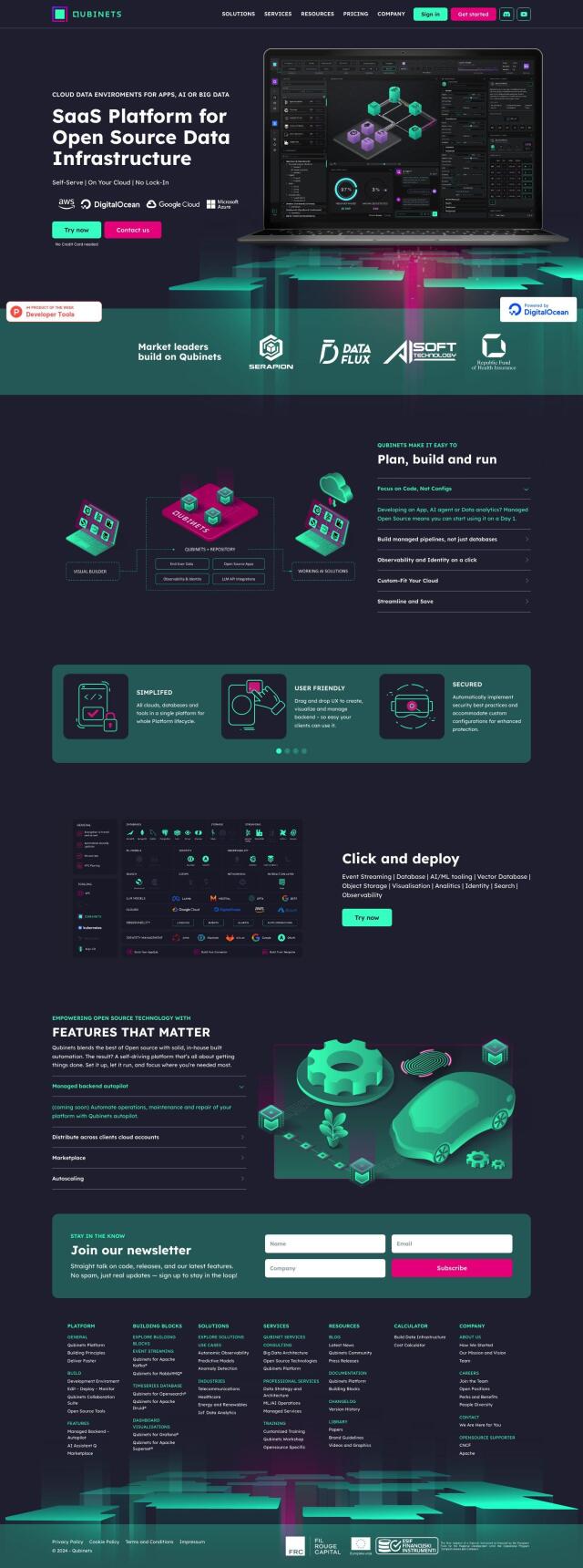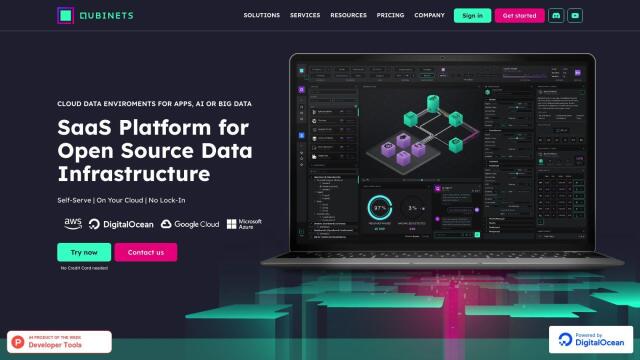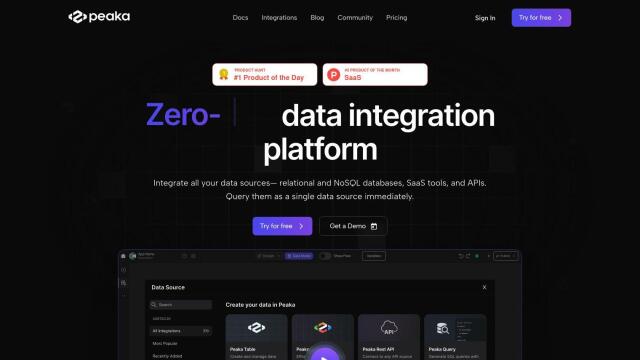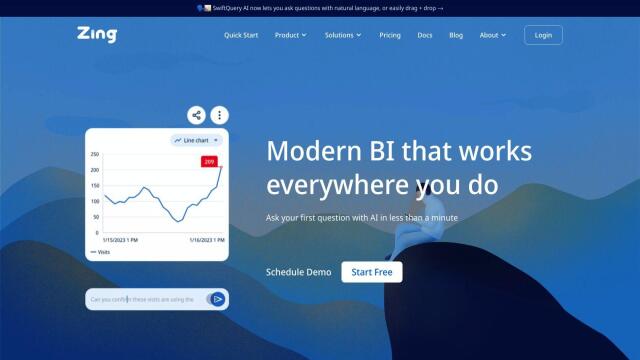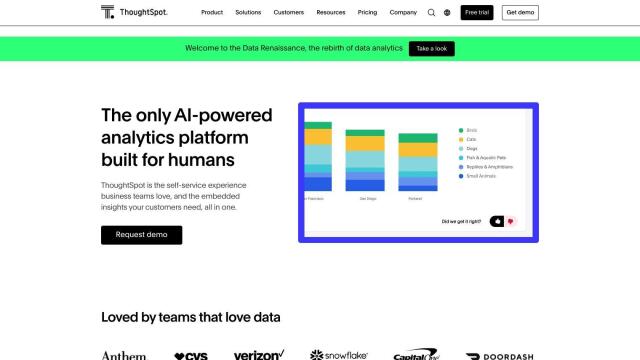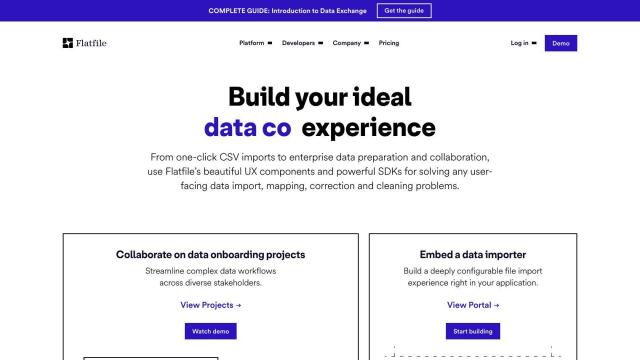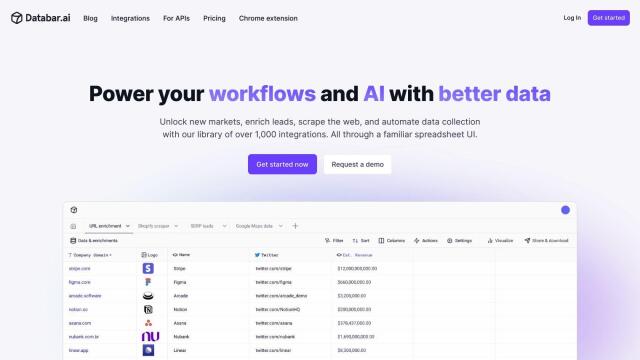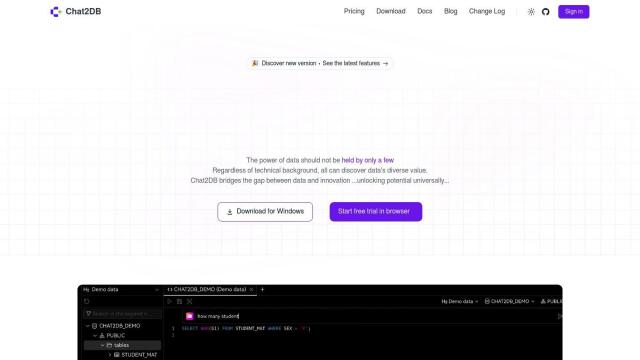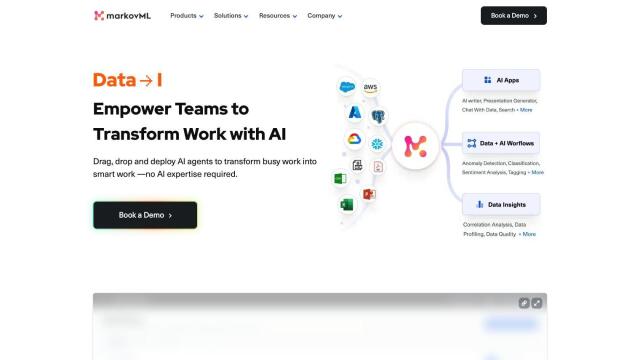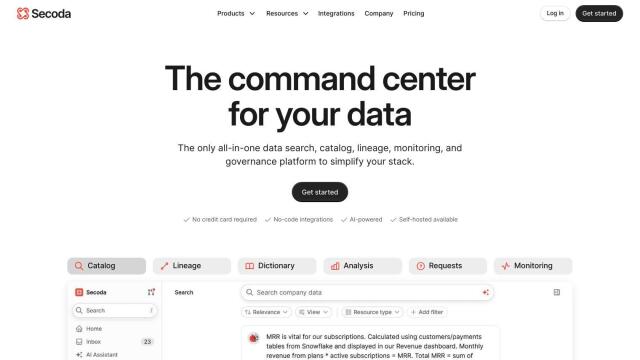Question: Is there a platform that can handle complex data formats and structures for data transformation?
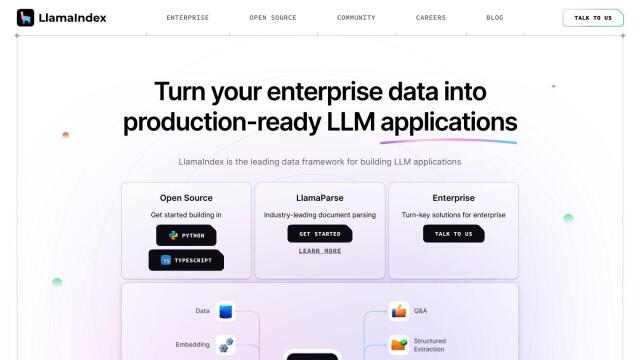
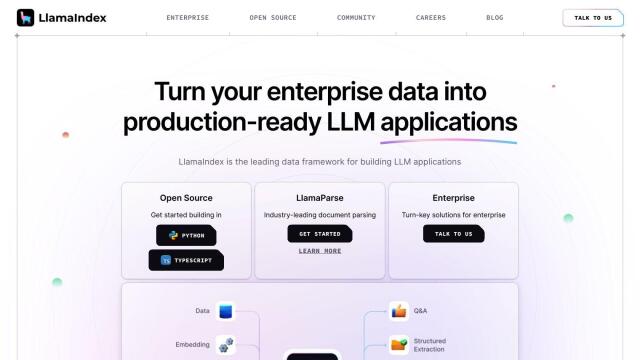
LlamaIndex
If you need a system that can handle complex data formats and structures for data transformation, LlamaIndex is a powerful option. It can handle more than 160 data sources and 40 different types of data storage, so it's good for a wide range of data transformation jobs. The framework handles data loading, indexing, querying and performance measurement, and integrates with a range of services like vector stores and SQL databases. LlamaIndex is geared for use in financial services, document intelligence and conversational assistants.

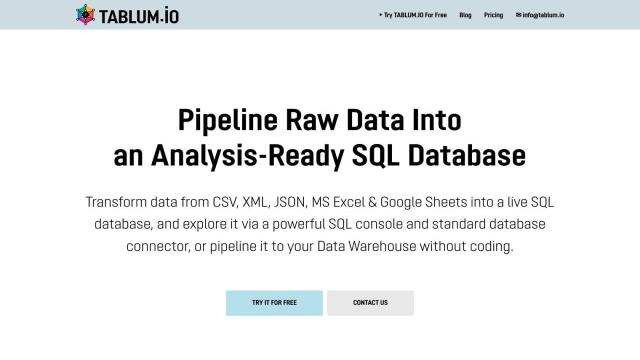
TABLUM.IO
Another good option is TABLUM.IO, a data ingestion SaaS tool that converts raw unstructured data into analytics-ready SQL tables. It can handle a variety of formats like CSV, XML, JSON and more, and offers data integration, cleansing and transformation abilities. TABLUM.IO can handle a wide variety of data sources and integrates with Business Intelligence platforms and data visualization tools, so it's a good option for those who want a relatively easy solution to common data engineering problems.
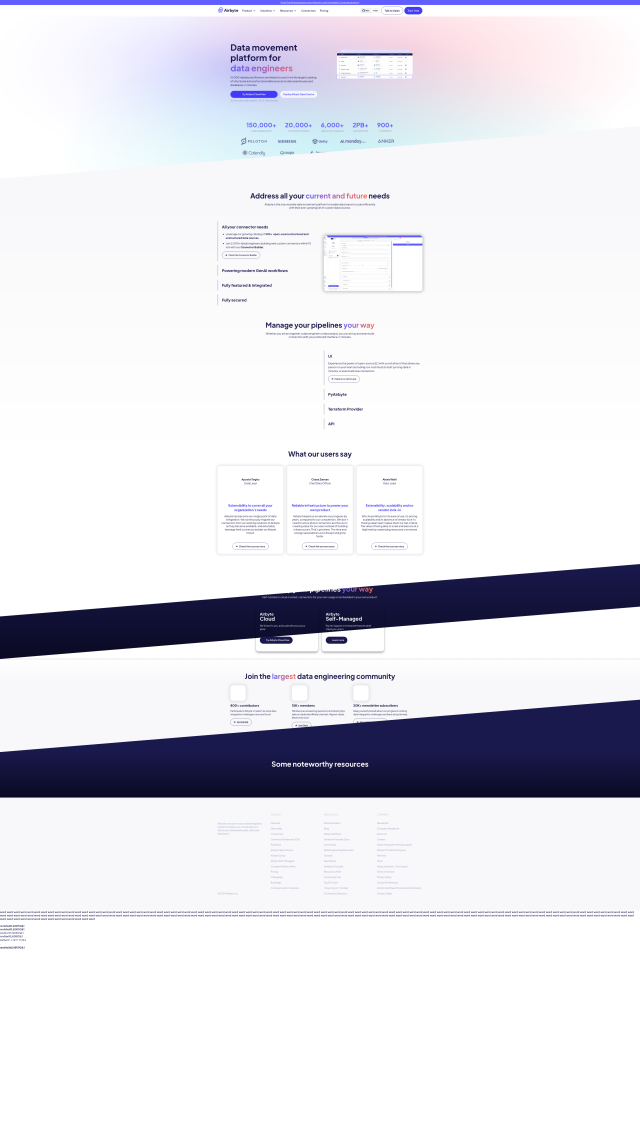
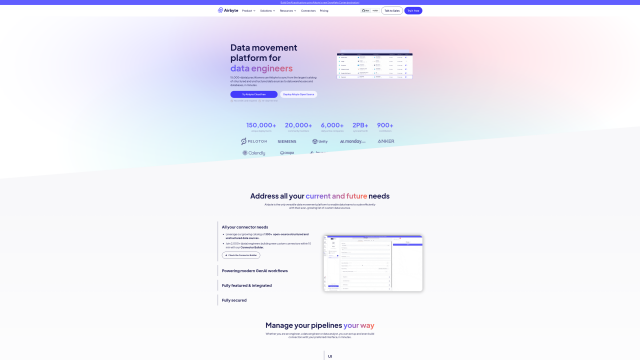
Airbyte
If you prefer an open-source approach, Airbyte is a flexible data integration system that handles more than 300 data sources and many destinations. It's got features like automated schema evolution and security features like single sign-on and compliance with major regulations. Airbyte can be deployed in a variety of ways and has a user-friendly interface, so it's good for both small-scale and large-scale data integration projects.

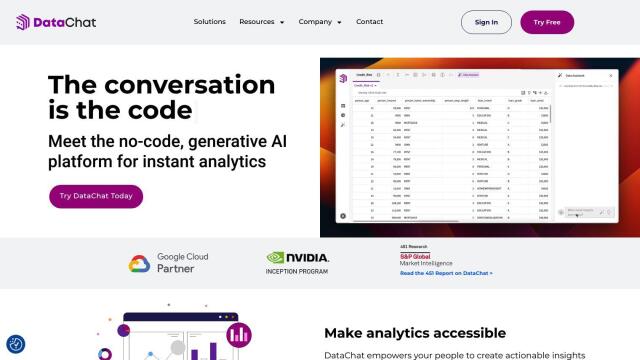
DataChat
Last, DataChat is a no-code generative AI platform that can convert complex data into insights without having to write any code. Its interface is designed to be easy to use, and it's got built-in machine learning and predictive analytics abilities, so it's good for data scientists, analysts and business users. DataChat automates data preparation, exploration and modeling, which can be a big help with your data transformation.

